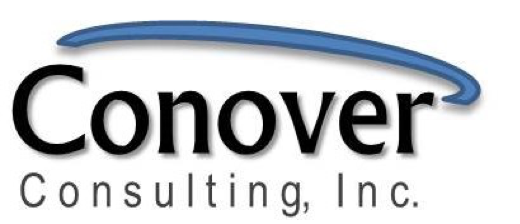In the Age of COVID, AI Will Dramatically Change How We Work
No longer the stuff of science fiction, artificial intelligence (AI) is already being utilized by businesses throughout the world and poised to significantly change how we do business. The race to embrace AI is only being accelerated by the ongoing COVID-19 pandemic and the expansion of the so-called “gig economy” it has triggered. (For more information on this topic, please read my latest post here.)
As a result, business owners, as well as those in senior leadership roles, must seriously think about how to expand their use of both AI and gig workers if they want to remain competitive in these unprecedented times. After all, if the coronavirus pandemic has taught us anything, it is that there’s more than one way to run a business (well).
Spurred by the necessity to respond to COVID, particularly as concerns social distancing, many companies — particularly those in white collar industries — are finding it’s possible — and actually preferable — to run their companies differently. For instance, employees now work remotely from home instead of crowding into large central offices. They’ve also discovered much of the tasks normally completed by traditional full-time employees can be just as easily handled by either less-expensive gig workers or automated entirely.
In light of this reality, the challenge companies face is two-fold:
Identifying which jobs can be outsourced.
Determining which tasks can be handed over to AI.
As to the first challenge, companies are finding it’s often more cost-efficient to build a stable of skilled off-site workers who can be called upon to handle projects as needed rather than incurring the costs necessary to maintain them as full-time employees. Employing “gig” workers relives a business of the need to pay for benefits, like health insurance, paid vacations, sick days, Social Security contributions, worker’s compensation, etc.
Also, thanks to the Internet, it has become possible to contract with skilled service providers worldwide, many of whom charge far less than their domestic counterparts. The types of jobs that can be outsourced include computer professionals, web programmers and designers, call center/customer service agents, human resource professionals, artists and drafters, and bookkeepers/tax preparers. California employers need to remain mindful of AB5 when considering outsourcing, and consult competent employment legal counsel when considering outsourcing work that may not be allowed under AB5.
As for jobs that can be relegated to AI, these include data entry, paralegal work, telemarketing, bookkeeping, reception, proofreading, advertising, retail sales, and even fast food preparation. (Note: in many cases, AI does not operate autonomously but, like the traditional computer, is a tool allowing a single employee to do the work of many.) For example, a paralegal AI may replace its human counterpart, but there’s still a licensed attorney operating and controlling it.
“COVID-19 has accelerated the rate at which companies are transitioning to AI and other forms of automation,” notes Mike Priddis on this subject. Priddis is a former partner at Boston Consulting Group and now CEO of Faethm, a global AI platform. “It’s acted like a slingshot. What was going to take five years to accomplish is now being done in five months. This is having a huge impact on companies and their employees and the nature of work itself.”
In a recent conversation series on the future of the workforce, Priddis also predicts we will soon undergo a “digital transformation” far outstripping anything we’ve experienced in the last 15 years. Since no one can predict where technology is headed, the most prudent thing any company can do is create an internal structure accommodating rapid change to make such transitions as smooth and painless as possible.
“Most organizations, rather than thinking about ‘Where We Are Going To,’ really should be building capabilities to continuously accommodate these kind of changes,” says Priddis. “The ability to change, having a dynamic workforce with the skills that allow them to adjust as the context changes, is probably the single greatest muscle that organizations need to build.”
By my estimation Priddis couldn’t be more prescient. Just last year, I was interviewed in Forbes on this topic. Though, of course, I couldn’t have predicted COVID-19, I did suggest companies must prepare themselves for transformations rocking the way we do business. On the other hand, I still hold fast to my beliefs that people are still any company’s most important asset. No matter how much companies embrace AI and other tools, people remain at the heart of business.
For the past 26 years, my company has specialized in helping companies build strong cultures to thrive in rapidly changing times with just such an emphasis on the human component. As an organizational specialist, I can deconstruct your workforce, determine which tasks can be outsourced and which can be augmented with AI, as well as advise on issues like compensation, culture, and leadership.
The time to get your company ready for the future is now. If you want to properly prepare your organization for the changes ahead, contact me at laura@conoverconsulting.com and let’s get you ready for tomorrow… today.
